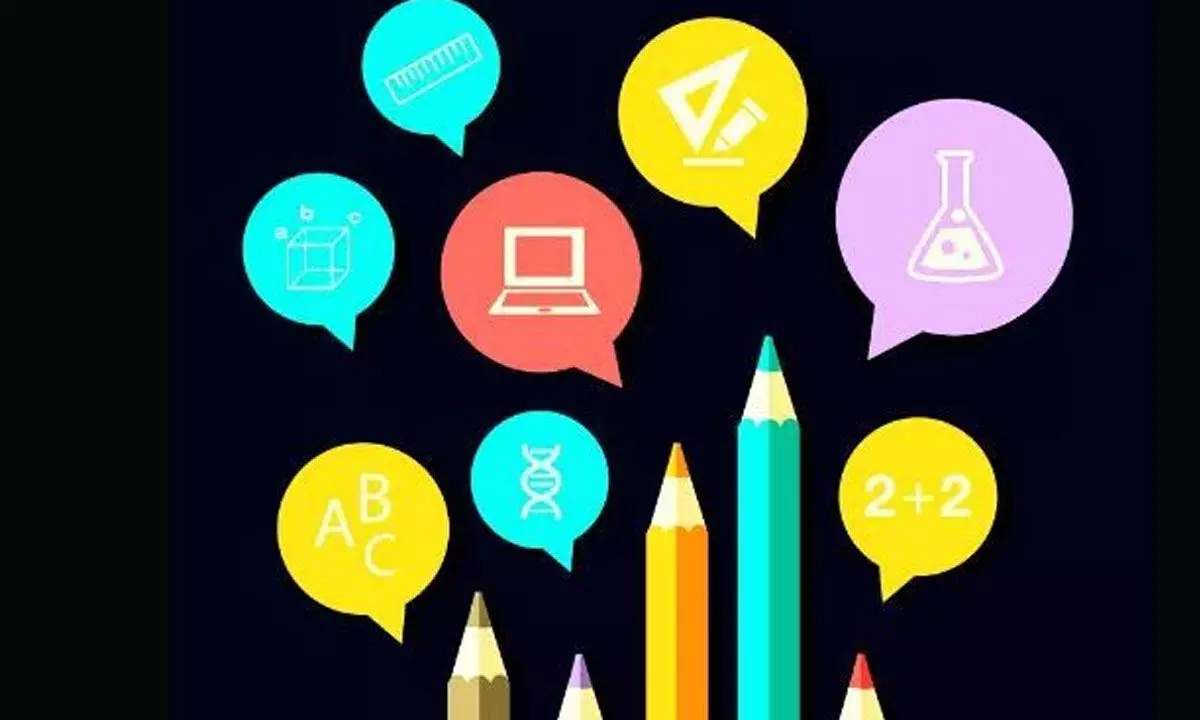IIPE to start Sandwich PhD Programme and PG Programme in Energy

IIPE to start Sandwich PhD Programme and PG Programme in Energy
The Indian education sector is thriving to revamp its quality standards and create a niche of its own
New Delhi: The Indian education sector is thriving to revamp its quality standards and create a niche of its own. National Education Policy 2020 has emphasised technical and skill training, and now each institute is working on a blueprint to engage students in multidisciplinary courses.
The Hans India spoke with Professor Shalivahan, Director, Indian Institute of Petroleum and Energy, to discuss the various aspects of the educational ecosystem, including an early introduction to practical training, exposure to foreign universities and the development of an ecosystem that supports students, academics, faculty and staff.
"NEP critically mentions modern public universities for holistic, multidisciplinary education on par with IITs and IIMs called "MERU" (Multidisciplinary Education and Research University). NEP thinks IITs hold the same concept that the Programme is thinking about. Apart from this, we think there must be holistic student growth. And it's not just restricted to the students, but a holistic growth of the educational ecosystem including faculty members, staffs," Professor Shalivahan has said. Talking about the NEP catering to the needs of specific technical subjects, Professor Shalivahan believes that MERU might be the answer to supporting and promoting technical degrees. He says that while IITs have been following a similar model such as the MERU, the IIPE is coming up with a Sandwiched PhD programme, a concept that includes staying at international universities, preferably from six months to 1 year, to gain some skills and learnings from the top foreign universities.
"For the undergraduate students, the Institute would be starting Industrial visits, and from the second year of undergraduate courses, IIPE is taking students to product development, to industry-oriented projects," Professor Shalivahan told The Hans India.
Keeping in mind the importance of hands-on training experience, the institute has decided that from the second year onwards, undergraduate students will be assigned to train in an industry and work on its live problem. This is to generate ideas within the students to solve industry-oriented challenges from the early stages of their education at the institution. The IIPE Director has also said that the institute would support selected undergraduate students to spend sufficient time abroad, at top universities in the world, to participate in seminars and workshops. The idea is to be implemented from the forthcoming academic year i.e., 2022-23.
"For this idea of sending our students abroad, the PhD Scholars will have to come up with a specific proposal and to defend it in front of experts. There would be students not just from IIPE but across the country who aspire to benefit from such initiatives, such exposure," the Institute's Director has said.
IIPE is one of the youngest institutes in India and offers two undergraduate courses viz., Petroleum Engineering and Chemical Engineering. From the upcoming academic year in 2022, the institute will also enrol students for the PhD programme. Professor Shalivahan has said that five students from the PhD programme will be selected for its Sandwich PhD programme.
Professor Shalivahan previously worked as the Deputy Director at the Indian Institute of Technology (ISM), Dhanbad. He took charge as the Director of IIPE in May 2022, and his primary objectives are building a strong alumni network and CSR linking. The institute is preparing documents to approach various industries and share IIPE's vision to seek support from them. On various industries adopting automation, Professor Shalivahan says, "IIPE is in the process of starting an Executive Development Programme. On such programmes will be on Energy and Smart Cities. Generally we talk about Energy and Smart Cities in Silo. Thus, this Programme will be a marriage between the two. We are going to have a dozen of such executive development programmes. Each of these multidisciplinary programmes will require one to spend a total of 30 hours and these courses will be conducted by Indian academicians, industry experts and foreign academicians as well."
IIPE is also geared up to announce its first postgraduate Programme, which is to be launched in 2023. The institute's director has said that the PG degree will be based on sustainable energy and have a multidisciplinary approach to it.










